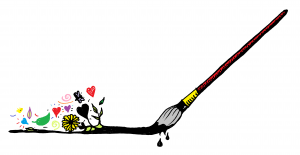
Arts Therapies
Arts Therapies currently provided in the UK comprise of: Art Therapy or Art Psychotherapy, Dance Movement Therapy, Body Psychotherapy, Dramatherapy, and Music Therapy.
There is some evidence that these approaches are effective in reducing symptoms (especially negative symptoms) associated with psychosis. They are thought to help people in a number of different ways including:
- Finding ways to express themselves and relate to others when words might be difficult
- Making sense of their experiences
- Understanding feelings that emerge during the creative process

What Happens in Arts Therapies?
Arts therapies are sometimes offered individually, but more commonly in groups. The development of trusting relationships is key to the process.
Although the sessions often involve making something (art, music, dance) the focus is not on producing something of high quality, but on the process of expressing ideas and emotions. Therefore no prior experience or skill is required.
How Do You Get Arts Therapies?
Arts therapies are not always available through NHS mental health services, but if you or your relative are interested in this approach, then it would be a good idea to discuss it with the Care Coordinator and find out what opportunities are available locally through voluntary and community groups. Note that evidence that these approaches are effective for people with psychosis has only been found for fully trained arts therapists and there is no research evidence yet that they work for bipolar disorder. However, many people report engaging in creative activities make them feel better.
The British Association of Arts Therapists provides details of trained therapists. Other useful websites are listed in the Resource Directory.


